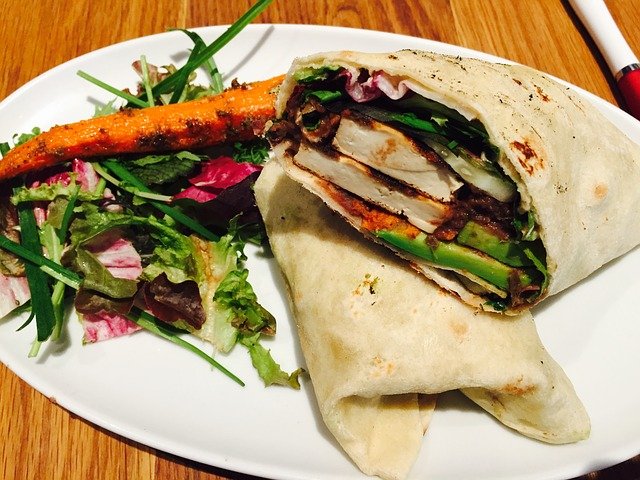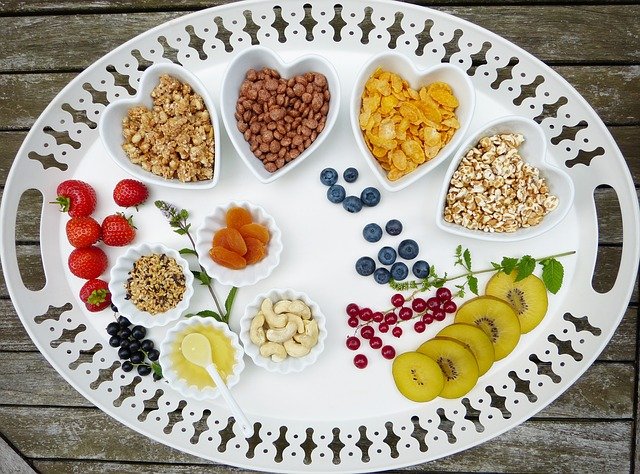Plant-based diets including vegetarian and vegan lifestyles have risen in popularity over the last few years. In 2019 alone, about two and a half million Aussies were found to be following a plant based diet. If you’re wondering about the best plant based diets for you, read on.

What are plant based diets?
Aussies have been switching to plant based eating for a number of reasons, including ethical, religious, health, economic or environmental reasons. A plant based diet is one that is made up primarily of whole and unprocessed plant-based foods such as:
- Fruits
- Vegetables
- Legumes
- Seeds
- Whole grains
- Nuts
A strict plant-based diet is one that excludes any form of animal product and is mostly commonly followed as a vegan diet. However a vegan lifestyle is not restricted solely to diet; vegans make sure not to consume animal derived cosmetics or clothes as well. Vegans do not consume the following foods:
- Meat and fish
- Eggs
- All forms of dairy, cheese, yogurt
- Fish oil
- Honey
A vegetarian diet on the other hand is more varied and flexible than a vegan diet. Find out more about a vegan diet. Vegetarians can eat some of foods restricted by the vegan diet, with the exception of meat and fish. Depending on which foods they include, vegetarians can be classified as:
- Lacto-ovo i.e. those who consume eggs and dairy
- Ovo i.e. those who consume only eggs
- Lacto i.e. those who consume only dairy
If you ask any of the above groups, “What are plant based diets?” you’ll get different answers. The differences in their approaches may be subtle but they are of utmost importance when debating which lifestyle you’re going to follow.
What are the best plant based diets?
There is no conclusive best plant based diet – it is all up to personal preferences. However if you’re unsure about committing to the strict requirements, the best plant based diets to follow are the ones that offer you some flexibility.

The flexitarian diet is one such diet. It is a term derived from a combination of the words flexible and vegetarian and offers the benefits of a plant-based diet while allowing for some animal and milk products.
Many plant based eaters are not comfortable with this diet, but knowing what are plant based diets and actually sticking to them can be difficult for a beginner. The flexitarian diet does not adhere to the strict restrictions of the other plant-based dieters. Flexitarians may consume meat and animal products every now and then depending on personal choice.
A flexitarian plant-based diet is not a new fad; it is another term for the Mediterranean diet which is considered one of the healthiest diets in the world. This diet allows you to consume a wide variety of foods but minimizes meat consumption and avoids refined foods altogether. This is what makes it one of the best plant based diets for beginners.
The benefits of plant based eating
One of the primary reasons that Aussies have been taking up plant based diets is because of the immense benefits it offers. A plant based diet has been associated with:
- Maintaining a healthy weight
- Reduction of chronic diseases
- Improved cardiovascular health with mitigation of heart disease
- Possible reversal of Type 2 diabetes
- Lower risk of certain cancers
All these benefits are in comparison to diets that include animal products. Do note that non-vegetarian foods can be superior sources of nutrients like iron, calcium, vitamin B12, protein and omega-3 fatty acids.

One of the prime benefits of the best plant based diets is that they provide a high amount of fibre content. This leads to a proliferation of good bacteria in your gut and promotes good gut health. This goes a long way towards reducing inflammation and lowering risk of chronic disease.
What are plant based diets not recommended for?
While a well formulated plant-based diet can fulfill nearly all nutritional needs, some individuals may need to take extra precautions when switching to a plant based diet. These conditions may include:
- Those with gastrointestinal illness who may suffer from digestive issues and food intolerances
- Teenagers and younger children as they have higher nutrient and energy needs to fuel their physical and mental development
- Athletes who have a higher caloric requirement need to ensure that the higher fibre of plant diets does not impact their energy intake
- Those suffering from diabetes because the higher carb content of plant based foods can adversely affect their blood glucose levels
- Senior citizens because of higher nutrient needs made worse by poor absorption of food
Nutritional considerations of a plant based diet
You do not need to fret too much about nutritional deficiencies when considering a plant-based diet because they supply adequate amounts of macronutrients from the wide variety of foods. It is not likely that you will miss out on your carb, protein or fat requirements when following such a diet. However, there are some nutritional concerns.
Plant based sources of protein and omega-3 fatty acids are rarer than animal based food sources. With proper planning and by spreading out the nutrients amongst the meals, you can easily meet these requirements. There are also some micronutrient considerations that you need to bear in mind because these are not as abundantly found and absorbed from plants.

When on a plant-based diet ensure you get enough of the following micronutrients:
- Zinc
- Calcium
- Iodine
- Vitamin B12
- Iron
- Vitamin D
If you are unsure about getting your nutrients even with the best plant based diets, you might like to talk to a nutritionist.
What are the best plant based diets to get my macro and micro nutrients?
In order to ensure that you meet both your micro and macro nutrient requirements on a daily basis, make sure to include the following foods in your diet:
Protein:
- Grains
- Split peas
- Beans, lentils and other legumes
- Quinoa
- Nuts and seeds
- Soy and soy based products such as tofu
Iron:
- Legumes and beans
- Fortified breakfast cereals
- Nuts and seeds
- Dark green leafy vegetables
- Whole grains
Calcium:
- Fortified plant-based drinks
- Bok choy
- Tofu
- Kale
- Broccoli
- Almonds
- Sprouts
- Cauliflower
Zinc:
- Beans
- Nuts and seeds
- Wheat germ
- Oats
- Nutritional yeast
Vitamin B12:
- Supplements
- Mushrooms
- Fortified foods
- Nutritional yeast
Iodine:
- Cranberries
- Prunes
- Iodised salt
- Potatoes
- Seaweed
- Navy beans
Vitamin D:
- Lichen-derived D3 supplements
- Safe and adequate amount of sunlight
What are the best plant based diets for children?
Most plant based diets are adequate for children as long as they eat a large variety of plant based foods. When considering switching to a plant-based diet for your children, especially toddlers, it is essential that you consult a medical practitioner or dietician to meet their nutritional requirements.
The best plant based diets for children are those that are not too restrictive. A lacto-ovo diet is suitable for children when it comes to plant based foods. The Australian Government guidelines advise that infants below two years of age should be fed breast milk, soy-based infant formula or other options if they are on a restrictive diet like a vegan one.
Precautions of plant based diets
Even the best plant based diets can include junk foods or foods that add no nutritional value. Do be mindful of what you consume and follow some basic guidelines:
- Consume healthy whole and unrefined foods
- If you are pregnant, discuss your diet with your doctor to ensure you’re getting enough iron
- Avoid processed and packaged plant based foods
- Consume a wide variety of plants to ensure you meet all nutritional requirements, whether micro and macro
- Consult a medical practitioner or dietician when starting a new diet, especially a restrictive one such as vegan. This is especially true for children who may suffer from stunted growth if their diet does not meet their higher nutritional requirements

Tips for those following plant based diets
The two biggest challenges when starting out on a plant based diets are your buying options and the feeling of alienation in social settings. Consider the following hacks to help overcome both:
Buying options: You may find that your options for packaged food is limited when you switch to a plant based diet. This is because a lot of pre-packaged food has animal products in one form or the other. If you have made up your mind to switch to a plant based diet, then you should spend some time learning how to read food labels. Ensure that you are mindful of the sugar, fat and sodium content when watching for animal products
Social settings: Even the best plant based diets may make you the odd one out in a family event or when you go out with friends. Your options are limited and you may feel awkward about requesting the host or hostess to cater to your dietary requirements. Some family members or friends may be uneasy or annoyed by your diet changes.

To deal with this, let your companions or hosts know in advance. Do check before visiting a restaurant if there are enough options on the menu for you so you and your friends don’t have to discover this once you’re there.
Social media can be helpful because you can find other plant-based eaters and join a community. Joining these groups will allow you to get great recommendations, widen your support network, and improve your understanding of what are plant based diets.
Before you make the switch
When you’re considering taking the plunge, keep this in mind:
- Until you adjust to your new lifestyle, it helps to make a meal plan to help you decide what to eat for meals, snacks, beverages and dessert
- Ensure that you’re eating a wide variety of new foods. It may be a good idea to try online nutrition coaching to ensure variety and understand the best plant based diets for your specific needs
- Decide why you’re switching to a plant based diet. If you are doing it only for ethical reasons but are worried about missing meats, you might consider looking for ethical and organic brands. Knowing why you are doing it may also guide you towards a particular form of plant based eating and allow some flexibility.
- Let your friends and family know of your decision before you make it so they can offer their support and encouragement



